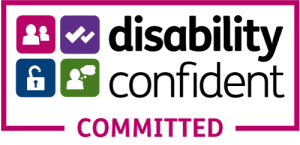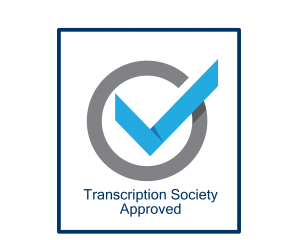What is interview transcription?
Interview transcription is the process of recording audio or video of two or more people speaking, either as a digital file or onto a device. The recording is then transcribed into a document by a transcriber (or transcriptionist in the US). It is the conversion of the spoken word into the written word.
Where can I find a specialist interview transcription company?
TP Transcription Limited have been transcribing interviews between two of more speakers for over 20 years. We have specialist interview transcribers with many years of experience converting audio and video recordings into documents of all shapes and sizes. Contact us today to discuss your requirements, or get an instant quote online.
What are the different types of interview transcription?
The various types of interview transcription depend firstly on the preparation time for the text document. You can choose between ‘live’ transcription and standard interview transcription. Secondly, it also varies according to the number of speakers. 2 speakers tends to indicate an interview transcription, 3 or more speakers tend to result in the recording being classed as a ‘focus group’ or ‘multi-speaker recording’.
What are the differences between Interviews and Focus Groups?
‘Focus group’ is the term used by a lot of people in the transcription industry to define a recording with more than two speakers. It is traditionally the term used by marketing and research companies to define a group of people selected to either provide feedback on a service or product, or alternatively to give their views on a particular issue, whether political, social or economic.
Focus group has morphed into a more general term when applied to transcription work, and it is essentially a recording with more than two speakers.
Why is the difference between focus groups and interviews important?
Mainly because of price, if you are using professional transcribers, but also because of complexity. Identifying individual speakers takes time, and AI transcription struggles to perform this task. Human transcribers tend to be highly skilled at differentiating between speakers, but it does take more time to complete a transcription as a result.
Do transcribers like transcribing focus groups?
A lot of transcription businesses do not like undertaking focus group work, and a good number of transcribers will decline the work. This is because a lot of transcription companies do not pay their transcribers a higher rate to complete focus group recordings, even though they take considerably longer to prepare, and a higher skill level.
We are signed up members of the Living Wage Foundation, and we pay considerably extra to our transcribers to complete focus group (multi-speaker) recordings.
Definition of an interview
‘Interview’ is usually the term adopted by transcription companies to describe the circumstance of Person A asking Person B questions, and Person B answering the questions. We often use the phrase ‘one to one interviews’, and over 80% of our work involves this type of work.
One to one interviews with an extra person
It can also be used to describe a circumstance where Person A asks Person B questions, but Person C is also in the room, whether as an additional interviewer (so Person A and Person C are interviewers) or as an additional responder to questions, so an extra interviewee.
Three or more speakers
We charge varying rates according to the number of speakers – we differentiate between certain numbers of speaker.
Our prices are broken down as follows:
- One speaker
- Two speakers
- Three speakers
- Four to eight speakers
- Nine to fourteen speakers
Prices increase according to the number of speakers involved in a recording. We do work on recordings with more than fourteen speakers, but will usually request a sample of a recording before we give a price.
What is the difference between live transcription and interview transcription?
Live transcription is a very specialist service involving very experienced transcribers. It is a little like automatic subtitling, but with a bit of a twist. Live transcription involves a very skilled transcriber with extremely fast touch typing ability, who watches or listens to audio or video and produces an instant transcribed text version of the recording at the same time. Once the audio or video has ended, they listen to it again and correct their work, before providing the client with an instant text copy of the audio or video. This service is very time consuming and as a result it usually attracts premium prices.
Examples of work we do as live transcription includes an ongoing contract with BPP Education to provide text of seminars for students with disabilities. We also provided live transcription of the BAFTAs for a PR company a few years ago, as they wanted to have instant text version of the awards for their website and to immediately send to their clients.
Do we need a professional set up to record interviews?
Recording interviews for transcription does not require too much of a professional setup, particularly with the quality of recordings on smart phones in recent times. Samsung and Apple both have extremely powerful recording devices on most phones that adequately serve a purpose provided the phones are positioned in the right place during the interview.
What is the Key to a Good Interview Recording?
The key to recording is to try and make sure that everybody being recorded is equidistant to the recording device, so if you are recording in a room with five people, try to make sure that the recording device is situated between everyone and not closer to one person and furthest away from others. The most common problem we have as transcribers is with interview transcription where an interviewer and interviewee are sat in a room together but the interviewer has the recording device next to them and not close to the interviewee. This means that we can clearly hear all the questions being asked but not the answers.
Academic Interview Transcription Problems
A huge proportion of our work is academic transcription of one-to-one interviews between academic researchers and subjects being interviewed for the purposes of the research. The researcher will often speak quite clearly, be conscious of the recording and also the future transcript, but the interviewee will be very new to the whole thing, may talk over the top of the interviewer, and not speak clearly at all.
Put the Interviewee at Ease
The interviewer should always spend a bit of time at the beginning of any recording session just explaining to the interviewee that they are recording the session and that at a written version of the conversation will be produced in due course. If the researcher and interviewer explains to the interviewee (i.e. the subject) that they are going to be transcribed and a professional transcriber is going to have to listen to the recording and produce an accurate record of everything that has been said, it can have the effect of slowing down the interviewee as they think about the need to be heard clearly. To a certain extent this is human nature – if you don’t explain that someone else is going to have to listen to the recording and produce a transcript then as far as the interviewee is concerned you are simply recording the interview to preserve it for any future reference and they are likely to speak more in conversation than to speak clearly and concisely so someone else is able to make a record of it.
Take a Refresher Break
You can always take a break as well during the interview to remind the subject that a professional transcriber will be transcribing the interview and just to remind them that they need to speak clearly and concisely wherever possible.
Background Noise
The other problem of course is background noise and this is a regular issue when it comes to transcription produced by AI. AI transcription is usually unable to deal effectively with recordings that involve considerable amounts of background noise, and the same applies with a lot of the budget transcription businesses online providing services at very low cost. Unless a recording is done with minimal background noise or interference then the budget transcription companies will immediately return it without completing it and the AI will produce an unintelligible version of what has been said during the interview.
No Extra Charge for Hard to Hear Recordings
TP Transcription does not charge extra for difficult or hard to hear recordings. We treat every recording the same and this involves interview transcription where there is considerable amounts of background noise. We have software that can eliminate a good proportion of background noise for the human ear to listen to and produce an accurate record. We also have a lot of patience and expertise at providing transcriptions from hard to hear recordings.
What is the Optimum Length of an Interview Recording?
The length of an interview is another question we sometimes get asked by researchers as to what is the optimum length for transcription of an interview when it comes to producing an accurate record.
The answer is that it really doesn’t matter for us. Our company works with clients who have literally hundreds of hours of recording as part of projects or ongoing need and some of the recordings we work on can be a few minutes and others can be a few hours.
We Recommend 60 Minutes – Why?
One thing to say on this subject though is that a recording longer than 60 minutes will invariably take a considerable amount of data and this can make it harder to manipulate or store for the purposes of getting the audio or video transcribed. This is particularly so for video recordings, which can take up huge amounts of space on devices.
Whilst we have the capacity to handle videos of any size, not all phones for example or recording devices have particularly large amounts of space available. With this in mind we would usually recommend thinking about restricting a video interview to less than 45 minutes if you can, but in any event less than 60 minutes. After this, start again on a second recording. Not only does this mean that you get to check the recording device to make sure everything is working after 45 or 60 minutes but also it will make it easier to store on your device and also send in to us.
Specialist Transcribers
TP Transcription Limited are specialists in accurate transcription of interviews. We have over 20 years’ experience assisting our clients. Please visit www.tptranscription.co.uk or contact us for further details.









